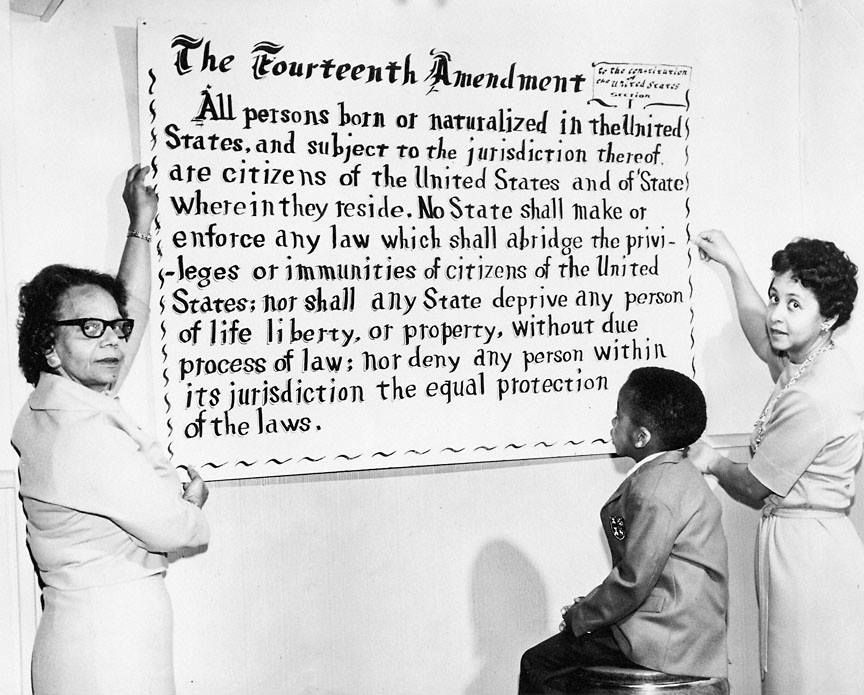
Introduction
The 14th Amendment to the United States Constitution is a fundamental component of American civil rights law. Ratified in 1868 post-Civil War, it provides critical safeguards for individual rights and liberties, especially in matters of citizenship and equal protection under the law. Its ongoing relevance is increasingly highlighted in contemporary legal and political contexts, as debates about race, immigration, and civil rights continue to shape American society.
Historical Context
The 14th Amendment was crafted to ensure that former slaves would receive the rights of citizenship and equal protection under the law. The amendment includes several key provisions, including the Citizenship Clause, which guarantees that all persons born or naturalized in the United States are citizens. The Equal Protection Clause prohibits states from denying any person within their jurisdiction equal protection of the laws, which was a significant shift towards protecting civil liberties.
Key Provisions
The amendment has five main sections. Notably, Section 1 addresses citizenship rights and equal protection. Section 2 modifies the way representatives are apportioned, while Section 3 disqualifies certain officials from holding office if they engaged in insurrection against the U.S. Section 4 affirms the validity of public debt, and Section 5 gives Congress the power to enforce the provisions of the amendment.
Impact on Civil Rights
The 14th Amendment became a cornerstone for subsequent civil rights movements. Landmark Supreme Court cases, such as Brown v. Board of Education (1954), relied heavily on the Equal Protection Clause to dismantle segregation in public schools. Additionally, the amendment has been invoked in various contexts, including reproductive rights, LGBTQ+ rights, and immigration policies, making it a versatile tool in legal battles over individual rights.
Recent Developments
In recent years, the 14th Amendment has gained renewed attention as social movements advocate for racial equality and systemic reform. Discussions about immigration and citizenship have stirred debate over how the amendment’s provisions should be interpreted. Legal challenges continue to arise, testing the boundaries of its protections—most notably in cases impacting Deferred Action for Childhood Arrivals (DACA) and other immigration policies.
Conclusion
The significance of the 14th Amendment remains profound in contemporary American society. As it continues to shape legal interpretations and policy discussions, it is crucial for citizens to understand its provisions and implications. The ongoing legal interpretations and public discourse surrounding the amendment underscore its importance as a living document that reflects the evolving values of American democracy.



